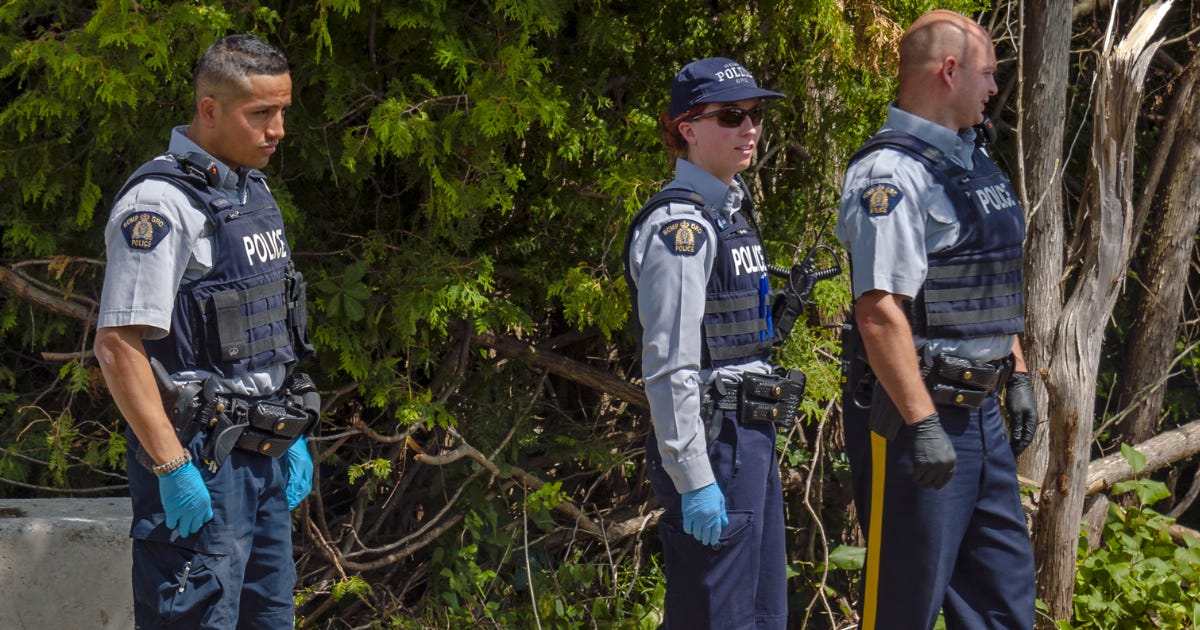Liberals’ deportation targets cover less than a tenth of removal backlog
A top border security official revealed that Canada plans to deport less than a tenth of those issued removal orders annually for two years, citing an inability to track individuals.
A top border security official revealed that Canada plans to deport less than a tenth of those issued removal orders annually for two years, citing an inability to track individuals on a “systematic level” and the vast majority of cases being delayed by the appeal process.
During a House of Commons immigration committee meeting on Wednesday, Canada Border Services Agency Vice-President of intelligence and enforcement Aaron McCrorie told MPs the agency plans to enforce 20,000 removal orders each year.
McCrorie said around 18,000 people have already been deported this year, but that 200,000 to 300,000 individuals who have been issued removal orders are currently being processed by the Immigration Refugee Board of Canada (IRB), a federal appeals court, and it “wouldn’t make sense to track each” of them.
McCrorie also mentioned that some individuals from countries where Canada cannot deport people, such as Haiti or Sudan, who have been declared inadmissible, “can’t be removed” and aren’t considered cases the agency is “actively working on” to remove.
When answering a question from Conservative MP Frank Davies about the CBSA’s target for removal enforcement, McCrorie clarified there are currently 30,000 individuals marked as “removals in progress,” but that the agency will only aim to deport two-thirds of each year for the next two years.
This means the agency has only deported 18,000 of the up to 330,000 individuals who have been issued deportation orders.
When asked by Conservative MP Costas Menegakis how long it would take for the CBSA to get rid of its backlog, McCrorie said that he “wouldn’t hazard a guess” because new orders are constantly being issued as deportation orders are processed.
He said the time it takes for the CBSA to actually deport someone “varies” as even after they’ve been ordered to leave, they can still appeal the decision to both the IRB and the Federal Court of Appeals. He also cited requests to the CBSA for “pre-removal risk assessments,” getting travel documents, and arranging travel for the deportees, which “can take some time.”
“We allow people to go through the due process in terms of making the appeal,” McCrorie said. “So those are steps that typically we go through prior to initiating a removal.”
Conservative MP Brad Redekopp asked McCrorie whether the agency deports asylum claimants who have been found inadmissible, but McCrorie said the agency “doesn’t necessarily track” everyone who has been ordered to leave.
McCrorie noted that due to the potential length of the pre-deportation process and possibility for decisions to be overturned, it “would not be an efficient use of our resources to track each and every individual.”
He confirmed that the CBSA does “gather exit information” from the land border and airports, though the agency has refused to release how many of those individuals were on work or study permits. However, he said the agency has no way to gather that information beyond individual investigations on each would-be deportee.
“The nature of the information. Will be, who you are, your travel document, date of birth, your mode of travel, that sort of thing. Unfortunately, the systems aren’t designed in a way that allows us to do that analysis, I think you’re looking for at a systematic level,” McCrorie said. “So we can do it on a case-by-case basis, which is very labour-intensive, but we can’t do it at a systematic level.”
He said that while managing individual cases, the CBSA can determine where an overstayer is using exit data. In some instances, CBSA officers will accompany them to the airport to ensure they board the plane to leave Canada. He said other cases might involve officers actively escorting individuals to their destination country.
When asked how many individuals in the CBSA backlog have been flagged by the Royal Canadian Mounted Police as national security threats, McCrorie said there likely haven’t been any flagged by the RCMP and that most who have been ordered to leave due to criminality have already served their time in prison and are ordered to leave due to the length of their stay.
Last week, in an interview with True North, immigration lawyer Sergio Karas outlined several issues with the removal order appeal process, saying criminal and fraudulent migrants could use it to stay in the country for years.
He recommended several ways he believes would improve the system, including giving the minister of immigration the authority to bypass tribunals and appeals courts for individuals who should be deported. He also recommended increasing travel bans to Canada for those who overstay and creating an “administrative monetary penalty” for the length of time that individuals overstay.





Translation...
NOTHING IS GOING TO HAPPEN.
It's a theme with Liberals these days.